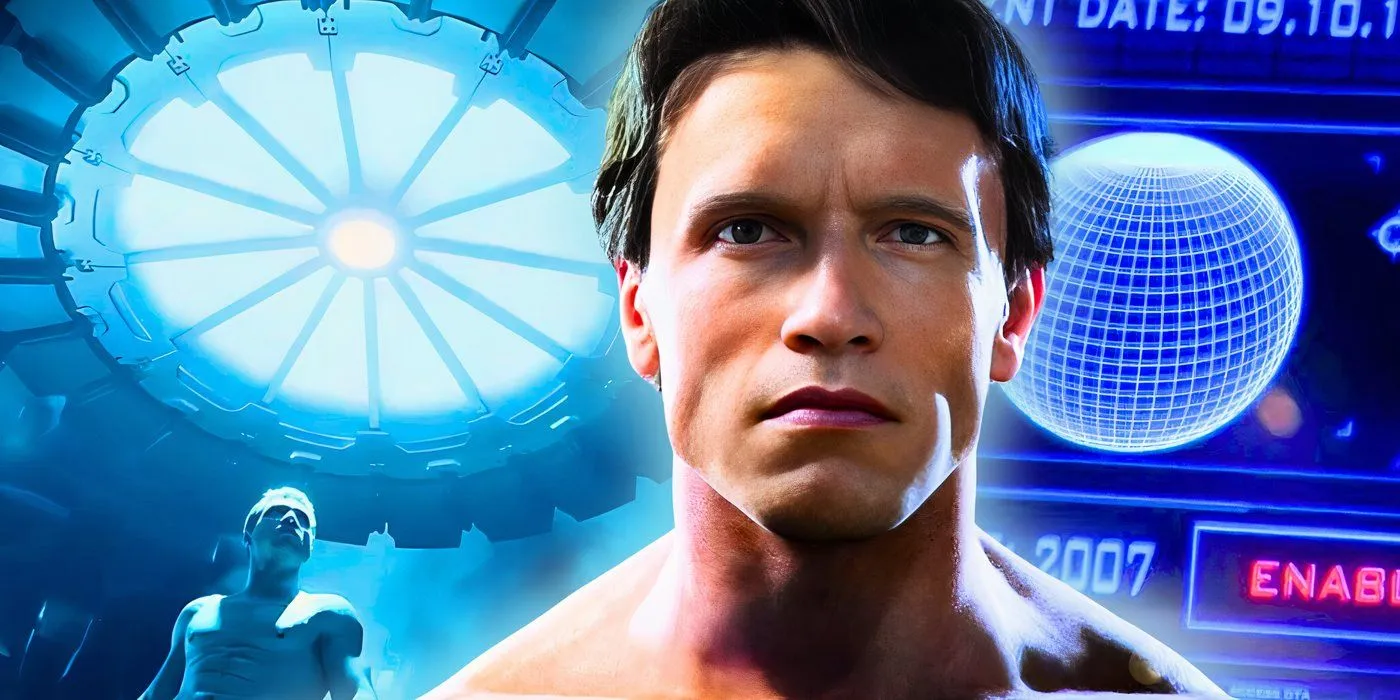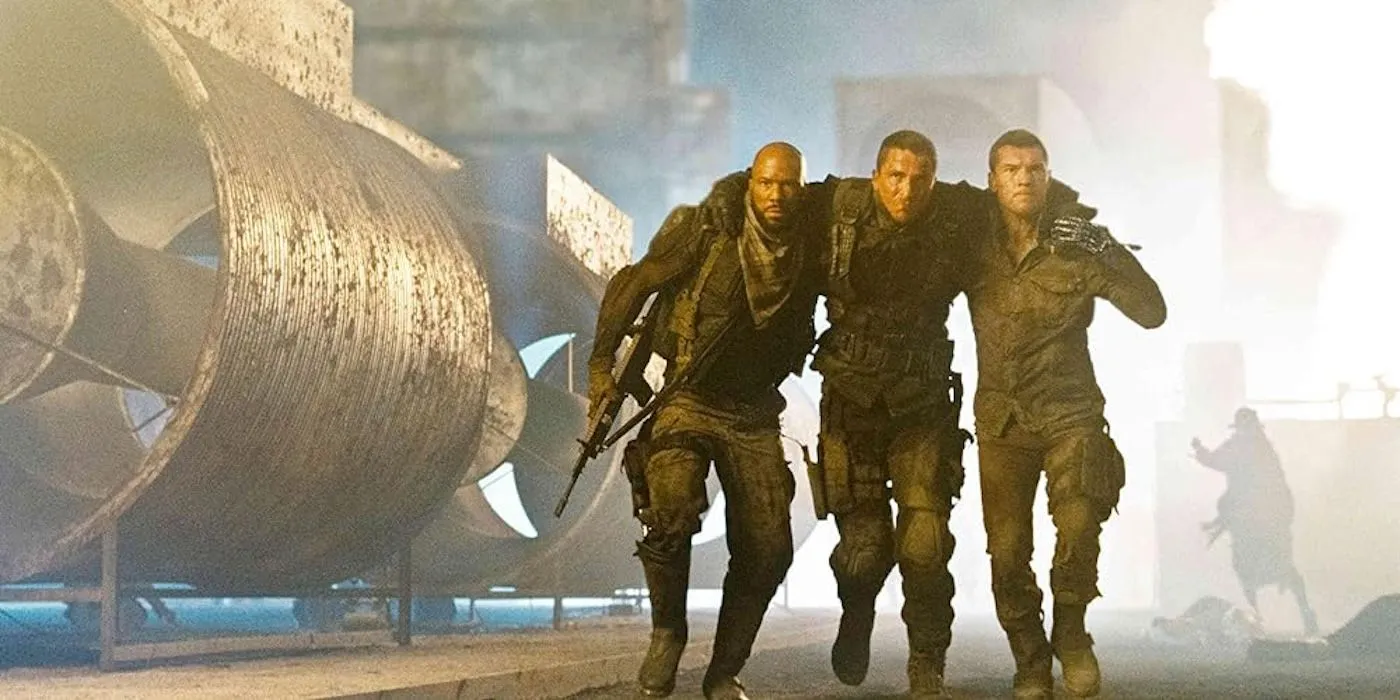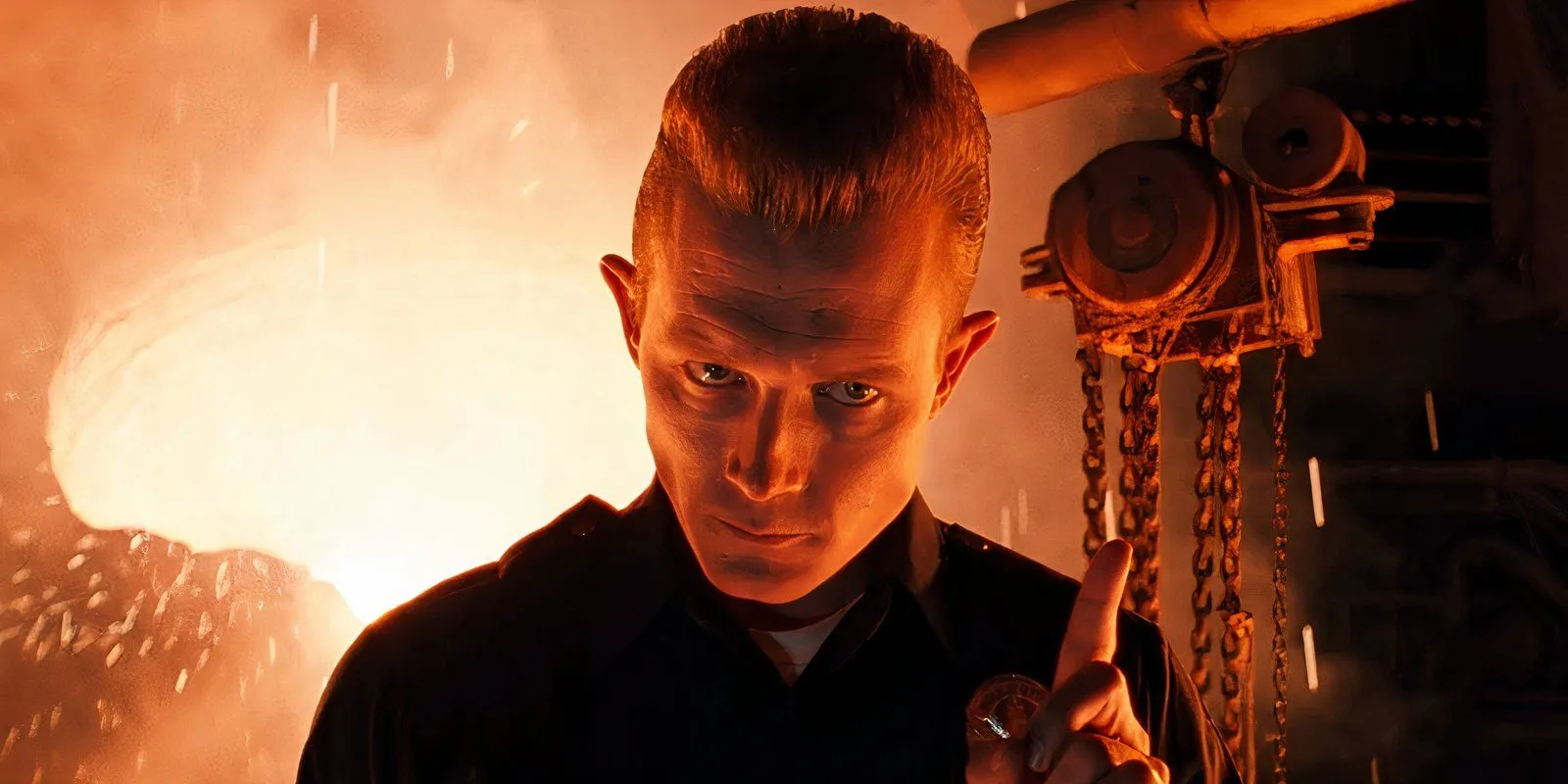
Terminator: Dark Fate is intricately woven into the continuity established by its predecessor, Terminator 2: Judgment Day, yet the timeline positioning is complex. By disregarding several sequels from the franchise, Dark Fate was anticipated to bring the narrative back to its roots. Although it did not reach the acclaim of the original two films, it boasts the highest ratings of any Terminator movie since T2, marking Arnold Schwarzenegger’s and Linda Hamilton’s return to their iconic roles alongside new characters.
The film opens with a familiar setup reminiscent of earlier installments—where a young woman finds herself pursued by a seemingly human machine, only to be rescued by a fierce protector. The new Terminator weaves elements from the initial models featured in the franchise, blending familiarity with innovation. However, unlike its predecessors, Dark Fate introduces notable time jumps, societal commentary, and ambitious storytelling choices that diverge from the series’ traditional format.
Timeline: 25 Years After Terminator 2: Judgment Day
A Legacy Sequel to Terminator 2: Judgment Day

The conclusion of Terminator 2: Judgment Day depicts Sarah Connor achieving a moment of peace as she departs with her son, John, after seemingly averting Judgment Day. The film featured an alternate ending that introduced an elderly Sarah observing her granddaughter with John, yet the more ambiguous conclusion paved the way for Dark Fate‘s narrative. Set 25 years later, we find Sarah and John believing they have found sanctuary in a bar in Guatemala, only to be confronted with their dire reality.
In a shocking turn, the movie swiftly eliminates John Connor early in the storyline. This unexpected plot point squares off against Sarah’s established character, who has fought fiercely to protect her son. John’s death not only symbolizes Sarah’s failure but also controversially undoes the hopeful climax of its predecessor. This plot twist allowed Dark Fate to effectively reboot the franchise, distancing it from the sequels where John was a pivotal figure. This decision sparked mixed reactions, yet it served as the foundation for the film’s primary storyline.
Dismissing Post-Judgment Day Films
Ignoring Rise of the Machines, Salvation, and Genisys





Dark Fate effectively resets the convoluted timeline by disregarding all subsequent sequels following Judgment Day. Killing off John Connor—arguably the franchise’s linchpin—grants the film the freedom to explore new narratives beyond the established lore. This creative decision opens avenues for nostalgia while simultaneously reinvigorating a significant storyline, allowing a fresh perspective on the battle against the looming machine uprising.
|
Terminator Movies in Release Order |
|||
|---|---|---|---|
|
Title |
Date |
Rotten Tomatoes Critics Score |
Rotten Tomatoes Audience Score |
|
The Terminator |
1984 |
100% |
89% |
|
Terminator 2: Judgment Day |
1991 |
91% |
95% |
|
Terminator 3: Rise of the Machines |
2003 |
70% |
46% |
|
Terminator: Salvation |
2009 |
33% |
53% |
|
Terminator: Genisys |
2015 |
26% |
52% |
|
Terminator: Dark Fate |
2019 |
70% |
82% |
While The Terminator enjoys a flawless 100% critical rating on Rotten Tomatoes, the narrative centers around a woman’s destined role as the mother of the savior against machines. Dark Fate flips this narrative by positioning Dani not merely as a vessel but as a key player destined to lead the resistance. This refreshing take sets the stage for future sequels with Dani at the forefront of the battle for humanity’s survival.
Exploring Timelines: 1995 and the 2040s
Flashbacks and Future Visitations in Terminator: Dark Fate

Terminator: Dark Fate traverses two significant timelines preceding the main events, including a pivotal glimpse from Judgment Day where Sarah warns about impending doom. The initial time jump reveals John Connor’s assassination in 1995 Guatemala, while the second leap transports viewers to the 2040s, showcasing Grace’s origins. Given Grace’s popularity among audiences, there’s potential for a new installment exploring her journey before her demise in Dark Fate.
One of the perennial challenges within a time travel narrative is the unavoidable risk of paradoxes. Each film has attempted to rectify previous plot inconsistencies, yielding mixed outcomes. Whereas Genisys endeavored unsuccessfully to rewrite the original plotline, Dark Fate strives to serve as a bona fide sequel to Terminator 2: Judgment Day, balancing innovation with the franchise’s foundational elements.




Leave a Reply